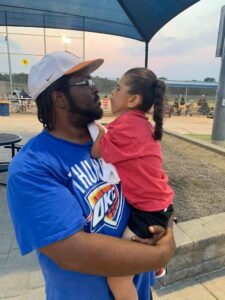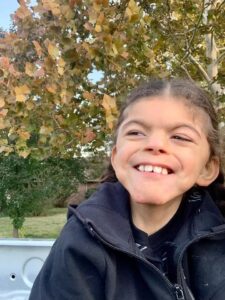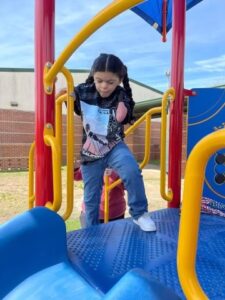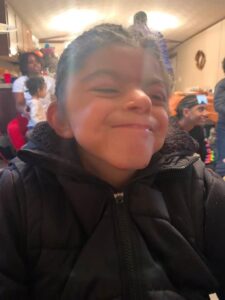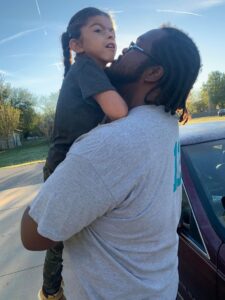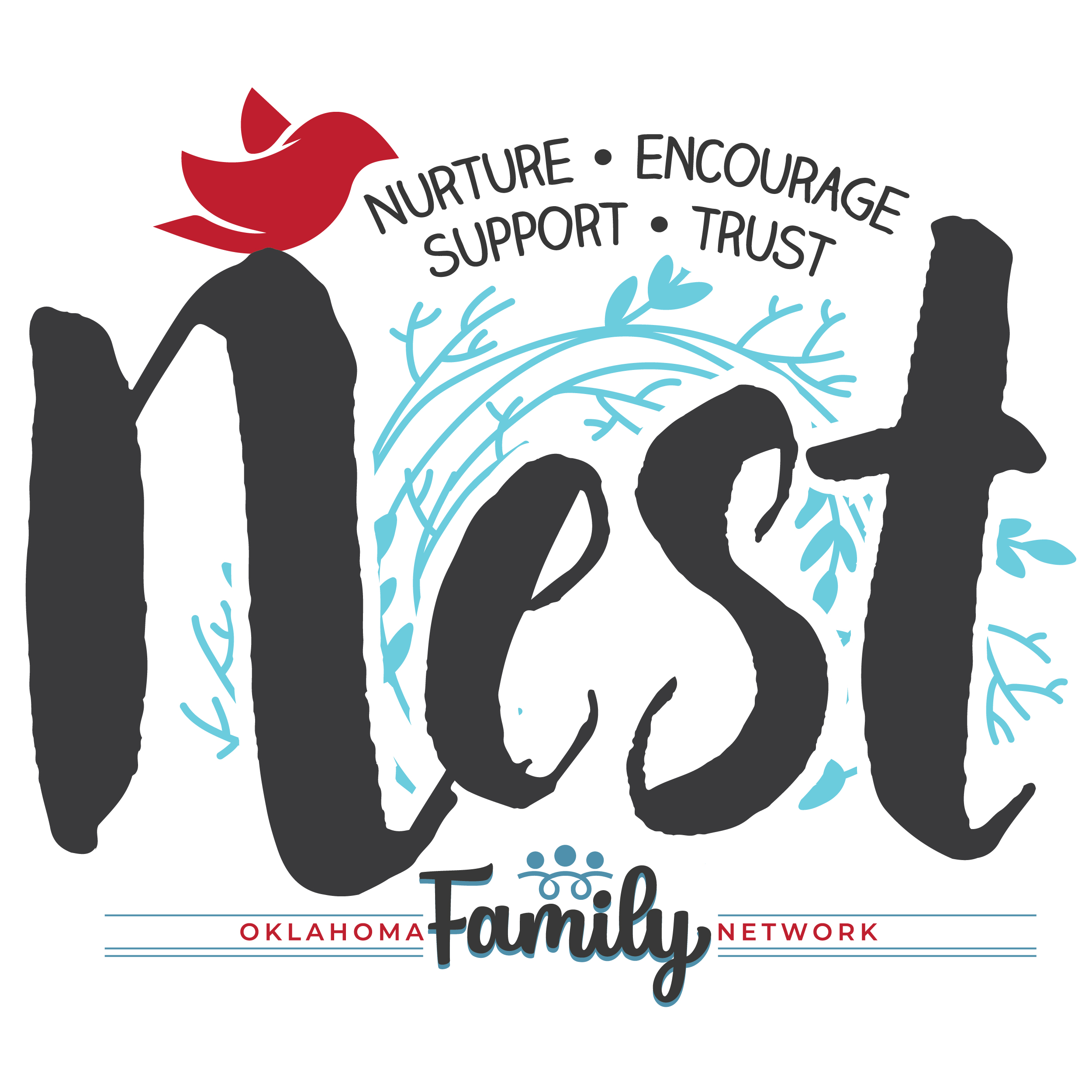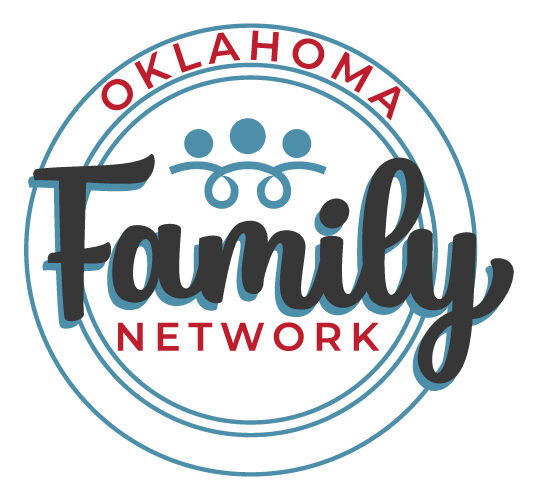Rare Genetic Syndrome Conversation
with Charles Moore
(Cornelia de Lange Syndrome)
Family Story - Podcast:
We introduce you to Charles Moore. He is a father to two children: a 13-year-old son, Charles III, who has Cornelia de Lange syndrome (CdLS), and a 16-year-old daughter, Zion. He has independently raised his children for most of their lives.
In this first episode of our 4-part release, Charles visits with us about his OKLEND (Leadership Education in Neurodevelopmental and Related Disabilities) experience. He also takes us back through early ultrasounds, delivery, and the diagnostic process for Charles III
Thank you for joining us for episode 2 (of 4) with Charles Moore as we discuss some of the most impactful people in his life as he began the advocacy journey on behalf of his son, Charles III.
Today's episode highlights his quest to learn as much as he can about Cornelia de Lange Syndrome (CdLS), and how incredibly helpful the cdlsusa.org website and organization has been in that search for knowledge and obtaining advocacy tips.
Charles also shares with us the role Little Light House in Tulsa, OK had on him as a parent to a young child with special health care needs.
Welcome to the 3rd episode of our conversation with Charles. We continue to bring education and support to others leading up to February 29, where we celebrate the uniqueness of being rare! (rarediseaseday.org).
Today we discuss Charles III's transition from Little Lighthouse into public school and the partnerships that helped make the process as smooth as possible.
Charles also educates us from a parent's perspective about Cornelia de Lange Syndrome and what he wishes everyone knew about CdLS. His words and expertise from a parent's perspective help shed light on this rare syndrome.
Oklahoma Family Network is thankful to have you join us for the final release in this series and conversation with Charles, to help us celebrate what makes Charles III unique as we celebrate Rare Day today!!!
++++++++++++++++++++
Rare Disease Day!! Rare Disease Day is the official international awareness-raising campaign for rare diseases, observed annually on the last day of February. The primary goal of this campaign is to increase awareness among the general public and decision-makers about rare diseases and their influence on the lives of families living with these conditions.
- While each disease may be rare, collectively, they impact a large number of people.
- 300 million people worldwide live with a rare disease.
- There are over 6000 different rare diseases.
- 72% of rare diseases are genetic.
- 70% of these rare genetic diseases begin in childhood.
Message From Charles:
"My name is Charles Moore, and I am a 2023-2024 trainee in the OKLEND program that is hosted through Oklahoma University. I am the father of a 13-year-old son, who has Cornelia de Lange syndrome (CdLS). I have independently raised Charles III (C3) for most of his life and have had full custody of him and his older sister since 2011. My career background is in pharmaceutical studies, and I was blessed to work as a compounding pharmacy technician/manager. This gave me the flexibility to care for my children and make a living.
Throughout this God-given journey, I have encountered many difficult situations and learned many things that have shaped my outlook and views on issues within the disabled community.
Many great things are happening in my community but there is much more to be done. I can benefit from personally for my son, and professionally with my plans for the community.
Unfortunately, when Covid started, life for C3 and I changed. He was not able to attend school and having no extended family here I was forced to quit work to take care of him full-time. As unfortunate as it was this became the biggest blessing to me as a parent. It forced me to see the world around us differently and home in on health, skills, and community issues that needed to improve for us both. Over the last three years, I believe my dedication and desire to see improvement has started to pay off. The biggest of these proofs was my nomination to be a part of the OKLEND 23/24 program class. After learning what the program was, I was honored to be nominated and even more blessed to be able to accept.
Everyone desires/deserves to live a happy life, with food, shelter, security, and free time holding great importance. These differences and my cultural experiences provide a unique perspective. Starting life in a small, close-knit black town, where most people live under the poverty level, structured my foundation. Moving to a new, majority-white, middle-class, large city shaped my identity going into adulthood. As an adult, navigating various cultures helped me prepare for my life with C3. My wide range of cultural experiences have molded my thoughts and actions which drive me toward being the best for my son and our minority community.
In a community that I had no plans to be in, I was forced to adapt and learn. I was taught that to be better you have to know better. To know better you should want to see improvement. Improvement always involves work and struggle. Work and struggle create opportunity. The more this cycle repeats itself the more opportunity comes out at the end. Having a disability shouldn’t discount someone to be treated any different than the next person. We are all humans."
NEST is a project of Oklahoma Family Network, Inc. funded by the Maternal and Child Health Bureau (MCHB) of the Health Resources and Services Administration (HRSA Grant H84MC093680600) and funded by the Heartland Genetics Services Collaborative, supported by a grant from the Genetic Services Branch of the MCHB of the HRSA (HRSA Grant H46MC24089).

